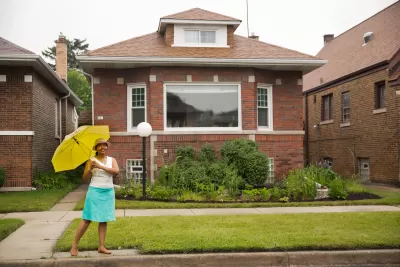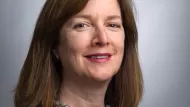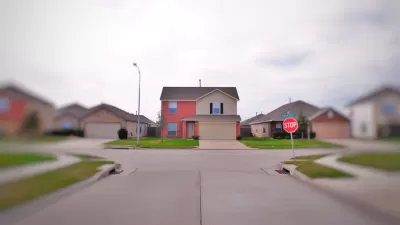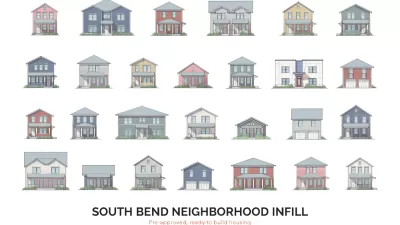In a growing trend, both local and state governments are addressing the nation's huge racial wealth gap by working to reverse the legacy of discriminatory housing and lending policies.

Affordable housing is hard to come by in most of the nation's cities. For the most part, advocates call for more affordable rental units. But that doesn't address the fact that historical policy that prevented Black Americans from buying homes has created a huge wealth differential. Nationally, average white wealth is eight times that of Blacks Americans, according to the Federal Reserve. The main reason behind the $3 trillion racial wealth gap is home ownership. Not only are Black home ownership rates lower, but the value of Black-owned homes is lower. Zillow estimates that if the average Black-owned house had comparable value to the average white white-owned home, Black wealth "would more than double from $931 billion to $2.1 trillion."
A few cities have begun to create housing reparations funds. It is a meaningful start, but it can't begin to address the housing wealth gap caused by historical redlining. A recent move by Massachusetts ups the ante. The remaining question is how we scale up to the level needed to address the wealth gap.
A first mover, Evanston, Illinois, started a reparations program in 2019 that would receive dedicated funding from the first $10 million in revenue from the city's tax on cannabis sales. In April of this year the first initiative, the Local Reparations Restorative Housing Program was allocated $400,000 to provide eligible families up to $25,000 for a down payment or home repairs. Eligibility is based on evidence from a study that identified city practices that affected the Black community between 1900 and 1969. Black residents who lived in Evanston between 1919 and 1969—and ancestors or direct descendants of Black residents of Evanston during that time—may apply for reparations. The fund has received an additional $21,343 in private funding and will request more funding from the Evanston City Council as needed.
In July 2020, Asheville, North Carolina passed a resolution that apologizes and seeks to make amends for slavery as well as residential segregation and its associated harms. In June of this year, the Asheville City Council appropriated $2.1 million from the sale of land to fund initiatives to support affordable housing, increase minority business ownership, and close the health gap. The newly established Community Reparations Commission will engage the community on the determining exactly how to spend the funds.
Other cities are following those models. The St. Paul City Council passed a resolution to create the St. Paul Recovery Act Community Reparations Commission in January 2021. An advisory committee will start meeting in August to figure out the best strategies for undoing some of the damage created by redlining, racial covenants, and highway construction in the most impacted neighborhoods. The commission will likely address affordable housing and homeownership, education, and healthcare, according to Trahern Crews, a member of the committee and Chair of the U.S. Green Party Reparations Working Group.
At least 11 other cities are exploring how to provide reparations for slavery to some of their Black residents with the intent of demonstrating successful models for a federal program. States can provide guidance as well.
Last week, Massachusetts Governor Baker and MassHousing, a quasi-public agency that provides financing and related supports for affordable housing, proposed using $500 million in stimulus and other funding to close the racial and ethnic homeownership gap. Of this, $300 million would be used to expand programs like down payment assistance to help borrowers access existing homes for sale. The remaining $200 million will be used to expand an existing program, the CommonWealth Builder, which targets Boston and the state's 26 "Gateway Cities"—medium-sized former manufacturing centers that are struggling, but have assets that could be developed to revitalize their economies. The cities have sizable Black and Latino populations, and the idea is to address historic inequities and promote home ownership. The program was created in 2019 with $60 million to distribute.
The latest effort builds on another MassHousing program, Workforce Housing, a $100 million to support housing for households that earn too much to qualify for subsidized housing programs but not enough to buy into much of the state's supercharged housing market. Chrystal Kornegay, executive director of MassHousing, explained to me that both programs target by household income, but CommonWealth Builder also has a geographic focus. "You have to do both buyer side programs and supply side programs to narrow the racial home ownership gap," she told me.
The significance of these programs is their emphasis on new affordable housing, which addresses the supply problem of programs that offer down payments on existing housing. The CommonWealth Builder offers developers $150,000 to build units then sell them at prices identified buyers can afford. The governor's proposal would add more than 1,300 homes that could be financed through the CommonWealth Builder program.
Even at this scale, the program doesn't begin to close the Black homeownership gap. With only 36 percent of Black households owning their homes compared to 70 percent of white households, Massachusetts has the sixth largest racial homeownership gap in the country. A Federal Reserve Bank of Boston study estimated a median net worth of $247,500 for whites and $8.00 for U.S.-born Black residents in the Boston area. Kornegay and her team at Commonwealth estimate that they need to add an additional 40,000 homeowners who are people of color to narrow the racial homeownership gap.
All the advocates and activists that I talked to agree that closing the racial wealth gap requires federal action. There is also the tricky question with race-based reparations program of which racial and ethnic groups should qualify. If the goal is to compensate for the historic discrimination that prevented wealth accumulation, beginning with slavery and continuing with Jim Crow and redlining in the north, then Blacks are in a unique category. But if programs are strictly racially targeted, they could face legal challenges and present a difficult politics to win support at an adequate scale.

Maui's Vacation Rental Debate Turns Ugly
Verbal attacks, misinformation campaigns and fistfights plague a high-stakes debate to convert thousands of vacation rentals into long-term housing.

Planetizen Federal Action Tracker
A weekly monitor of how Trump’s orders and actions are impacting planners and planning in America.

In Urban Planning, AI Prompting Could be the New Design Thinking
Creativity has long been key to great urban design. What if we see AI as our new creative partner?

King County Supportive Housing Program Offers Hope for Unhoused Residents
The county is taking a ‘Housing First’ approach that prioritizes getting people into housing, then offering wraparound supportive services.

Researchers Use AI to Get Clearer Picture of US Housing
Analysts are using artificial intelligence to supercharge their research by allowing them to comb through data faster. Though these AI tools can be error prone, they save time and housing researchers are optimistic about the future.

Making Shared Micromobility More Inclusive
Cities and shared mobility system operators can do more to include people with disabilities in planning and operations, per a new report.
Urban Design for Planners 1: Software Tools
This six-course series explores essential urban design concepts using open source software and equips planners with the tools they need to participate fully in the urban design process.
Planning for Universal Design
Learn the tools for implementing Universal Design in planning regulations.
planning NEXT
Appalachian Highlands Housing Partners
Mpact (founded as Rail~Volution)
City of Camden Redevelopment Agency
City of Astoria
City of Portland
City of Laramie






























